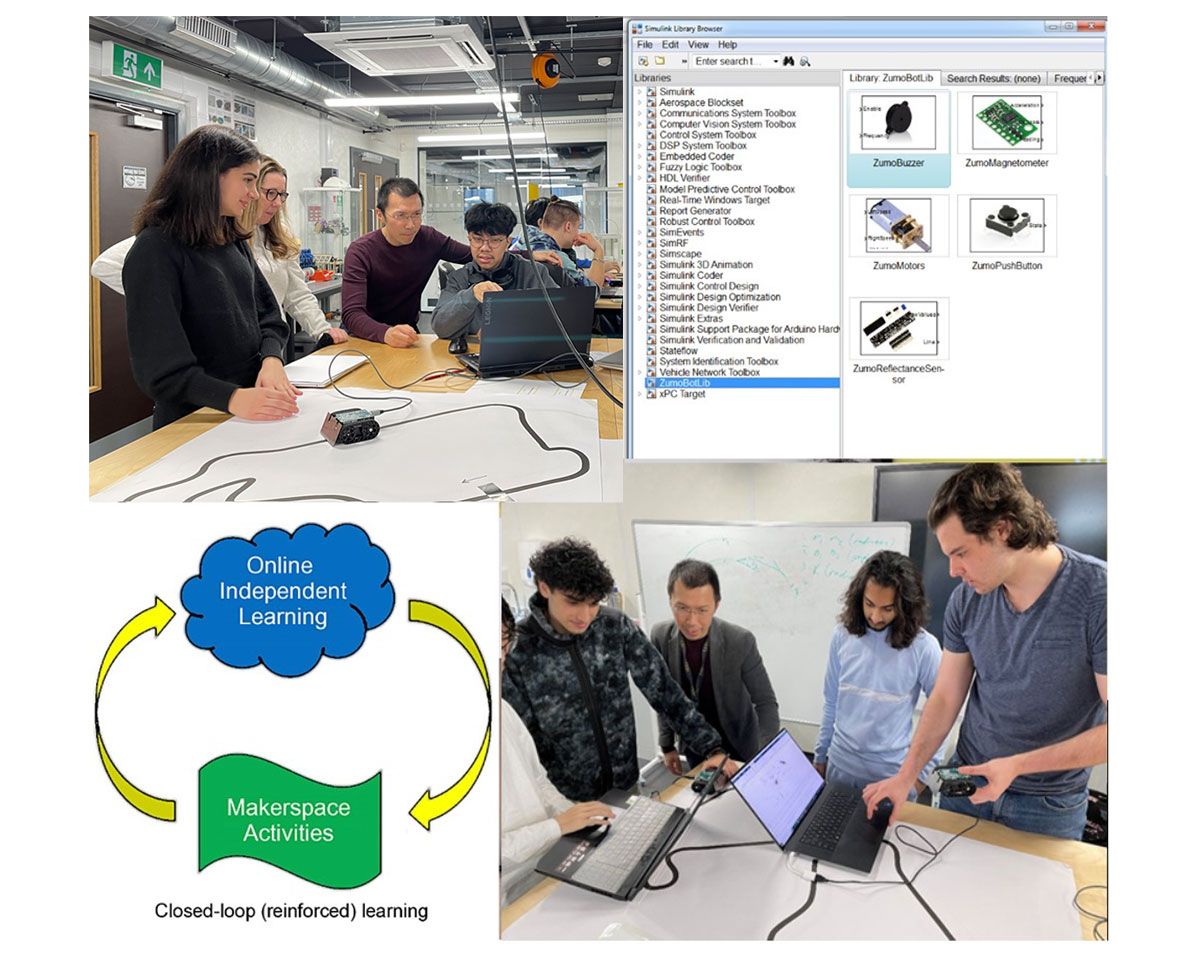Simulation-Enhanced Project-Based Learning Upskills Students at TEDI-London
Students Gain Real-World Experience in Hardware and Instrumentation
“Our dedication to a hands-on, project-based approach, along with collaborations with industry leaders like MathWorks, ensures that our students aren’t just learning engineering subjects, but they are evolving into innovative problem solvers prepared for the ever-changing landscape of the engineering field.”
Key Outcomes
- Streamlined setup of new project-based courses using MATLAB®, Simulink®, and corresponding hardware support packages
- Accelerated skill development and proficiency in students, improving their understanding through engaging projects
- Enabled students to gain experience collaborating with others and working with external partners
The Engineering & Design Institute London (TEDI-London) focuses fully on project-based learning (PBL). Rather than attending traditional lectures, students work in makerspaces, combining self-paced, online learning with hands-on experience in real-world engineering problem-solving. At TEDI-London, this closed-loop, reinforced learning technique is aimed at building the skills and mindset required to address future challenges.
With the help of MathWorks experts, Dr. Lam Cheah, a senior teaching fellow at TEDI-London, recently designed a new first-year module called Modeling and Simulation in Engineering Design. The module makes use of the virtual environment, teaching both simulation and hardware deployment, while also training students to implement, tune, and deploy motor controllers. It is set up as a design challenge in which a Zumo Robot for Arduino® autonomously navigates an indoor course.
Along with interactive tutorials, videos, and webinars, the module allows students to participate in workshops, master classes, and group discussions—as well as interact with MathWorks staff during in-person and online tutorials. Along with MATLAB Onramp and Simulink Onramp, live script examples teach students modeling and computational techniques across various engineering disciplines. Additionally, the module exposes students to various hardware and instrumentation, including microcontrollers, sensors, and actuators, enhancing their understanding of measurement and control. “The virtual environment provides a new medium, where many systems can be modeled and simulated. Pairing this with the project-based module meant that we can apply theory,” says Sinem Bozkurt, an engineering student at TEDI-London.
As part of the module’s final assessment, student teams compete by racing their tuned robots along the indoor course. For the future, Dr. Cheah intends to integrate concepts like machine learning and digital twins into the module to underline practical applications of what students learn in their degree.
Related Resources
